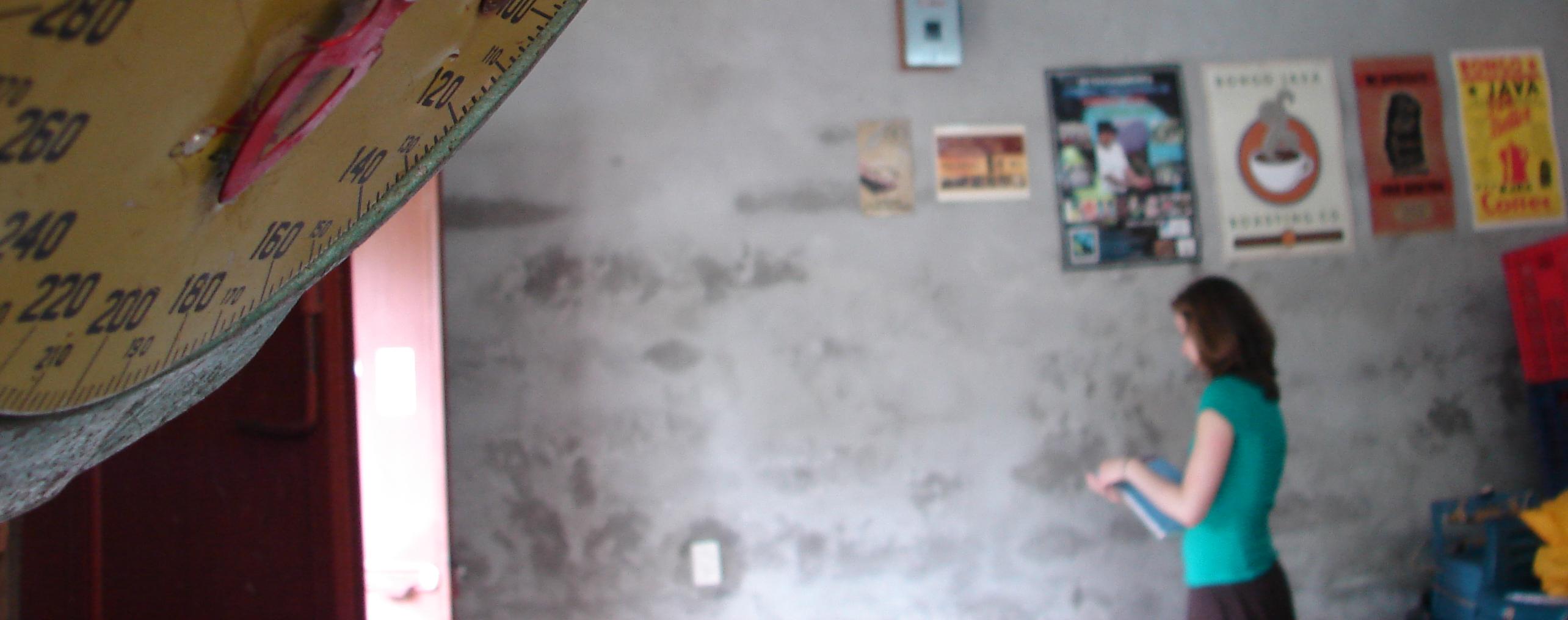Building Understanding through International Learning and Development (BUILD)
Student Research

|
|
All students, upon acceptance into the BUILD Program, are required to formulate a research question which they will seek to answer through their research conducted in the Program location. This academic element of the BUILD Program is relatively new, having begun in 2008, with the Program's first trip to Guatemala. Before the trip, BUILD students submit 15-page research reviews which are expanded upon return. Thus far, topics have ranged from sexual health care in indigenous Guatemala to the political ideologies of the URNG guerrilla groups. Upon completion, student research is posted to this page. Please contact the BUILD Program coordinators with questions and/or requests for full text papers.
Student Research
No Alcanza: Land, Rebellion, and Political Legitimacy in Post War Guatemala
Research Year: 2008
Author: Michael Niconchuk (LA '11)
Major: International Relations
Abstract: History is often viewed through a particular lens. In Guatemala, one concept has trumped all others as lying at the heart of the cycles of violence and corruption that have festered in recent history, and that concept is land. A discussion of Guatemalan history is best conducted through the lens of land and land reform. In this paper, I seek to address the sociocultural significance of land and agriculture from the time of the pre-Columbian Maya to the post-Peace Accords resettlement programs of the late 1990s. Additionally, I dedicate significant research to the politics and tactics of the guerrilla movements of the 1970s and 80s and their members' views on land ownership and agriculture.
Paper Excerpts: Coming Soon!
Full Text: For the full text of this paper please contact the program coordinators.
Coffee as a Path to Justice: The Effectiveness of Fair Trade
Research Year: 2008
Author: Kathryn Taylor (LA'11)
Major: International Relations, Economics
Abstract: Conscientious consumerism has become popular in the past few years as socially and environmentally friendly goods have become symbols of the highly marketable “green” movement. Coffee, in particular, has become one of the most popular instruments with which consumers feel they can help combat environmental degradation, extreme poverty, and economic injustice. Store-bought bags of coffee beans often flaunt the certification labels of various certification standards such as Fair Trade, Organic, Rainforest Alliance, Shade-grown, and Bird-friendly. Yet despite these outward displays, consumers rarely understand the complex implications of such labeling and the extent to which certifications resolve the problems they seek to address. This paper will address the successes and limitations of the efforts made by the Fair Trade movement to combat the economic plight of the coffee grower and will explore some alternative models to the Fairtrade (certified) system. I will illustrate these issues by drawing on my experience with two farms located in the Quetzaltenango region of Guatemala.
Paper Excerpts: Coming Soon!
Full Text: For the full text of this paper please contact the program coordinators.
Social Ideologies of the Organización Revolucionaria del Pueblo en Armas
Research Year: 2009
Author: Sharon Cho (LA '11)
Major: International Relations
Abstract: Guatemala has long been marked by political instability, social and economic injustice, as well as a bloody civil war between its authoritarian government and the people. After enduring years of political corruption and successive military government regimes, the people of Guatemala in the 1960s rose up to fight back. These guerrilla fighters and the government engaged in their battle for thirty-six years, which resulted in the longest civil war in Latin American history. In this paper, I explore the ideological groundwork of the guerilla movement, specifically, of the Organizacion Revolucionaria del Pueblo en Armas (ORPA). The paper examines how the OPRA’s founder, Rodrigo Asturias’ personal background, beliefs, and experiences later shaped the guerrilla movement’s political and social doctrines. I implement the experiences of the members of Santa Anita as case studies in further analyzing ORPA ideologies. How have these histories influence the lives of the members of Santa Anita? What remains of the ORPA today?
Paper Excerpts: Coming Soon!
Full text: For the full text of this paper please contact the program coordinators.
Culture and Access Issues in Sexual Health Care in Mayan Guatemala
Research Year: 2009
Author: Rajesh Reddy (LA '12)
Major: International Relations
Abstract: The 1996 Peace Accords, which officially ended the 36-year conflict between the Guatemalan government and the guerilla forces, affirmed the right of all indigenous people to health care. As part of its reconstruction plan, the Accords provided for health sector reform and highlighted the government commitment to extend health care to previously neglected indigenous areas. Nevertheless, health care standards in Guatemala are lacking in several areas, from vaccinations to sexual health. Contraceptive use and family planning knowledge are two especially sensitive and significant topics in rural areas. To date, the necessary sexual health resources have not reached highly indigenous Mayan areas. Several non-governmental organizations, including APROFAM and USAID, have implemented various intervention strategies to access these Mayan areas. In doing so, they confront socio-cultural barriers that make this work uniquely difficult. This paper explores those barriers, which include religious restrictions, Mayan cultural practices, and general Guatemalan attitudes.
Paper Excerpts: Coming Soon!
Full text:Full text: For the full text of this paper please contact the program coordinators.

